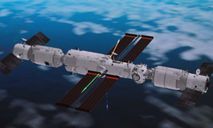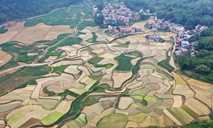Interview: Opposition mounts to planned release of Fukushima water into Pacific, says British expert
LONDON, May 12 (Xinhua) -- A leading British nuclear industry expert has called for a detailed consultation over the Japanese government's plans to release more than a million tonnes of contaminated water from the wrecked Fukushima Daiichi Nuclear Power Station into the Pacific Ocean.
The concerns "should be listened to and should be considered and discussed with those who are raising those concerns," Professor David Copplestone, a renowned expert in environmental radioactivity at the University of Stirling in the United Kingdom, told Xinhua in an exclusive interview on Tuesday.
In April last year, the government of Japan decided to release about 1.25 million tonnes of waste water into the ocean in 30 years starting in 2023. The contaminated water contains radioactive cesium, strontium, tritium and other radioactive substances.
The move drew the ire of local fishermen. Opposition parties, including the Constitutional Democratic Party (CDP) of Japan, also criticized the plan and demanded its withdrawal.
"There have been impacts on the fishing industry related to the incident back in 2011," said Copplestone, who has visited Fukushima and has undertaken extensive research worldwide with the International Atomic Energy Agency (IAEA).
In his opinion, "there are reputational, social and economic impacts that have occurred primarily because, quite often, people become fearful of consuming fish from these areas that may be contaminated."
On March 11, 2011, a magnitude 9.0 earthquake struck off the coast of Fukushima Prefecture in Japan. An ensuing tsunami engulfed the Fukushima Daiichi plant, causing core meltdowns in three of the units and leading to the worst nuclear crisis since Chernobyl.
Eleven years after this disaster, the aftermath of the meltdown, along with the large amount of contaminated water, continue to cause headaches to Japan and the rest of the world.
Japan has claimed that the contaminated water could be diluted and discharged, but several local and international green activists have said that the claim repeatedly proved wrong as the purification equipment cannot eliminate radioactive materials completely.
"One of the main concerns here is the presence of tritium, which is a hydrogen element that is radioactive as an isotope. It is very difficult to separate it from the contaminated water," Copplestone said.
"If we want to dispose of that water, we have to think about ways to first get rid of the radionuclides in that water -- if at all this is possible. Unfortunately, it is not possible to remove tritium from that water," he noted.
According to Copplestone, "this is about holding a really open dialogue to educate people about the consequences of the planned release."
"It's really important for the Japanese government to engage in dialogue with those voicing their concerns, and to listen to those concerns," he said.
Photos
Related Stories
- Japan severely breaches obligations under international law by persisting in discharge of nuclear-contaminated water into ocean
- 11 years on, Fukushima morass still poses danger
- Japan's highest court orders TEPCO to pay damages to Fukushima disaster victims
- Seven questions the Japanese government must answer on its decision to discharge nuclear wastewater into sea
- China backs ROK's call for int'l organizations to cooperate on Fukushima issue
Copyright © 2022 People's Daily Online. All Rights Reserved.










